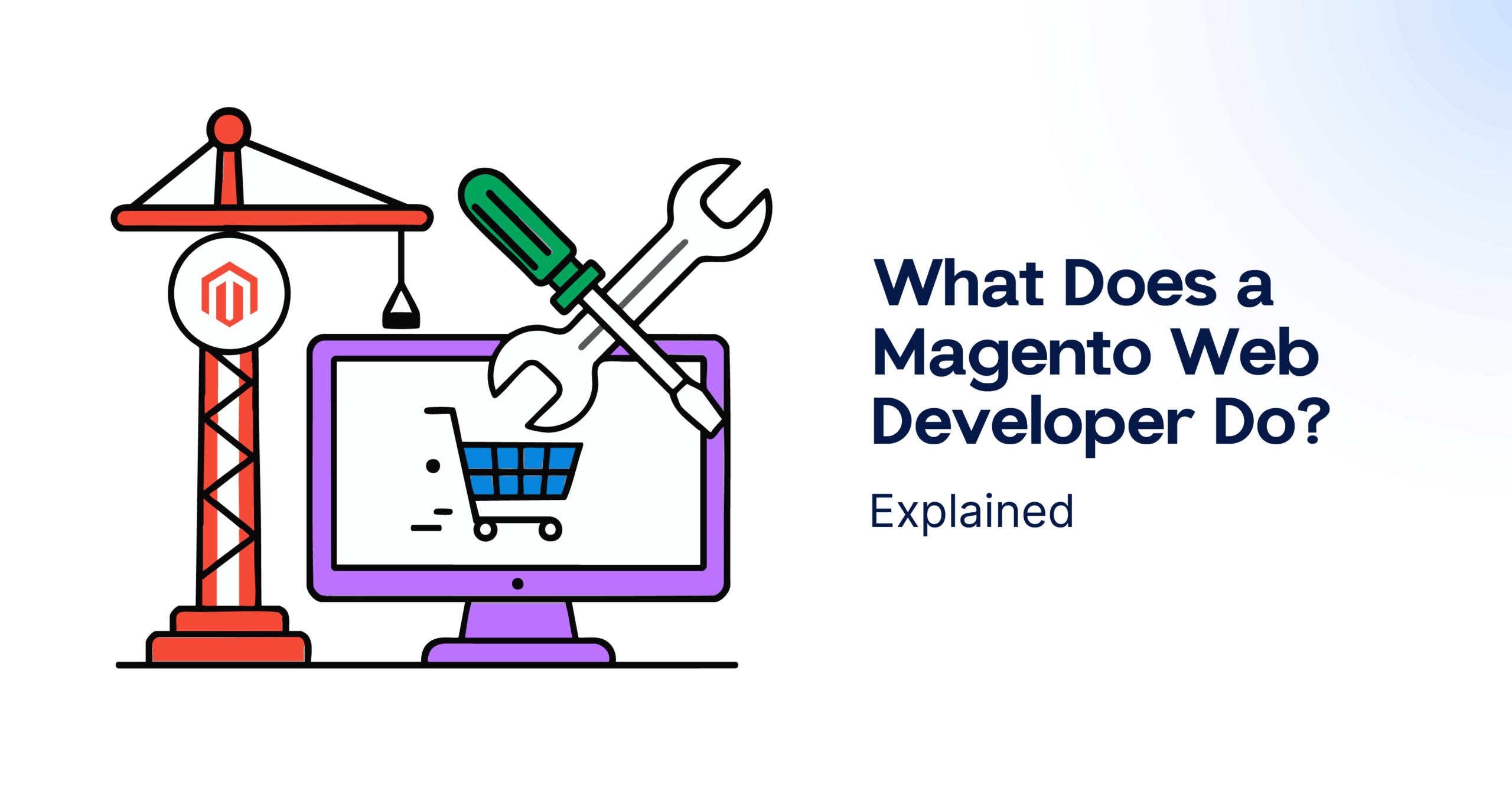
In the fast-paced world of eCommerce, Magento has emerged as one of the most powerful platforms for building and managing online stores. It offers scalability, flexibility, and a feature-rich experience for businesses aiming to grow their digital storefronts. Behind every successful Magento store is a skilled Magento web developer. But what exactly does a Magento web developer do, and why are they so vital to your eCommerce success?
Let’s dive into the world of Magento development and explore the key responsibilities, skills, and value a Magento web developer brings to the table.
Understanding Magento: A Quick Overview
Magento is an open-source eCommerce platform written in PHP. It is renowned for its customizability, extensive third-party extensions, and robust features like multi-store support, SEO capabilities, and advanced inventory management. Magento comes in two editions: Magento Open Source (free) and Adobe Commerce (paid), offering flexibility for businesses of all sizes.
Who Is a Magento Web Developer?
A Magento web developer is a technical expert who specializes in designing, developing, and maintaining eCommerce websites using the Magento platform. These professionals have in-depth knowledge of PHP, MySQL, HTML, CSS, JavaScript, and the Magento architecture itself.
Magento developers may work in-house, freelance, or as part of a Magento Development Company to provide full-service solutions to clients.
Core Responsibilities of a Magento Developer
Here are some of the major tasks and responsibilities handled by a Magento web developer:
1. Custom Website Development
A Magento developer builds custom themes and templates tailored to a business’s branding and user experience requirements. From layout to design and functionality, they ensure the store reflects the company’s vision.
2. Magento Extension Integration
Magento has a marketplace full of powerful extensions. A developer identifies, installs, and configures extensions to add features like payment gateways, shipping modules, or customer engagement tools. When off-the-shelf extensions don’t meet specific needs, developers can build custom ones.
3. Performance Optimization
A slow-loading eCommerce site can lead to lost sales. Magento developers optimize code, images, and caching settings to enhance page load times and overall performance, ensuring customers have a seamless shopping experience.
4. Mobile Responsiveness
In today’s mobile-first world, developers ensure Magento websites are fully responsive. This means the site adapts to various devices, offering consistent and user-friendly navigation across desktops, tablets, and smartphones.
5. Backend Development and Customization
Magento developers work on the backend to build and modify business logic, handle data integration with ERP/CRM systems, manage product catalogs, and set up APIs for third-party services. They also build custom modules to support unique business operations.
6. Ongoing Maintenance and Support
A Magento site requires constant monitoring and updates. Developers provide support by fixing bugs, patching security vulnerabilities, and upgrading the platform to newer versions to maintain compliance and performance.
7. Security Implementation
eCommerce stores handle sensitive customer data. Magento developers implement security best practices, including secure payment processing, firewall setup, data encryption, and access control to protect the site from cyber threats.
8. SEO Optimization
Although Magento is SEO-friendly out of the box, developers can further enhance on-page SEO by optimizing meta tags, URLs, site structure, and integrating analytics tools to boost the site’s visibility in search engines.
Skills and Tools Magento Developers Use
Magento web developers must possess a unique blend of technical and creative skills, including:
- Proficiency in PHP, JavaScript, HTML5, and CSS3
- Knowledge of Magento architecture and MVC framework
- Experience with MySQL and database management
- Familiarity with Git version control
- Understanding of caching technologies like Varnish and Redis
- Problem-solving and debugging expertise
In addition, certified Magento developers may hold credentials such as Adobe Certified Expert – Adobe Commerce Developer.
Why You Should Hire a Magento Developer?
If you’re launching a Magento store or planning to migrate your current website, hiring an experienced Magento developer can make a huge difference. They ensure your eCommerce website is:
- Tailored to your brand
- Functionally rich and high-performing
- Scalable to support future growth
- Secure and up to date
- Easy to manage from the backend
Partnering with a Magento Development Company like Exinent can also bring you the benefit of a team of experts handling design, development, SEO, and post-launch support under one roof.
Magento Developers vs. General Web Developers
While general web developers can build websites using a variety of platforms, Magento development requires specialized knowledge due to the platform’s complex architecture and customization capabilities. Magento developers are trained to handle intricate store functionalities, from product variants to checkout flows and third-party integrations.
Conclusion
Magento web developers play a critical role in building and maintaining successful eCommerce websites. They combine technical knowledge with eCommerce insights to create tailored shopping experiences that boost sales and customer loyalty. Whether you’re starting from scratch or upgrading your current site, investing in a skilled Magento developer ensures your business has a solid foundation for long-term success.
For businesses looking to elevate their online store, working with a professional Magento Development Company is a smart move that guarantees results.
Need Help with Magento?
Ready to build a powerful, feature-rich eCommerce website? Contact Exinent to connect with expert Magento developers who can bring your vision to life.
